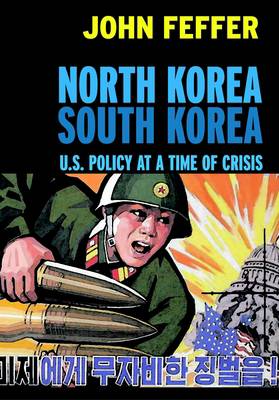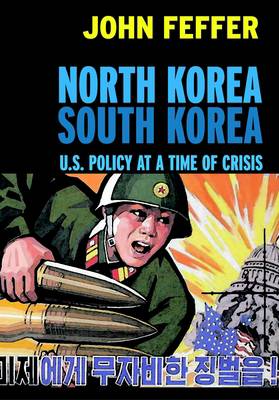
Je cadeautjes zeker op tijd in huis hebben voor de feestdagen? Kom langs in onze winkels en vind het perfecte geschenk!
- Afhalen na 1 uur in een winkel met voorraad
- Gratis thuislevering in België vanaf € 30
- Ruim aanbod met 7 miljoen producten
Je cadeautjes zeker op tijd in huis hebben voor de feestdagen? Kom langs in onze winkels en vind het perfecte geschenk!
- Afhalen na 1 uur in een winkel met voorraad
- Gratis thuislevering in België vanaf € 30
- Ruim aanbod met 7 miljoen producten
Zoeken
Omschrijving
The Korean peninsula, divided for more than fifty years, is stuck in a time warp. Millions of troops face one another along the Demilitarized Zone separating communist North Korea and capitalist South Korea. In the early 1990s and again in 2002-2003, the United States and its allies have gone to the brink of war with North Korea. Misinterpretations and misunderstandings are fueling the crisis. "There is no country of comparable significance concerning which so many people are ignorant," American anthropologist Cornelius Osgood said of Korea some time ago. This ignorance may soon have fatal consequences.
North Korea, South Korea is a short, accessible book about the history and political complexites of the Korean peninsula, one that explores practical alternatives to the current US policy: alternatives that build on the remarkable and historic path of reconciliation that North and South embarked on in the 1990s and that point the way to eventual reunification.
North Korea, South Korea is a short, accessible book about the history and political complexites of the Korean peninsula, one that explores practical alternatives to the current US policy: alternatives that build on the remarkable and historic path of reconciliation that North and South embarked on in the 1990s and that point the way to eventual reunification.
Specificaties
Betrokkenen
- Auteur(s):
- Uitgeverij:
Inhoud
- Aantal bladzijden:
- 200
- Taal:
- Engels
- Reeks:
Eigenschappen
- Productcode (EAN):
- 9781583226032
- Verschijningsdatum:
- 20/09/2003
- Uitvoering:
- Paperback
- Formaat:
- Trade paperback (VS)
- Afmetingen:
- 130 mm x 181 mm
- Gewicht:
- 181 g

Alleen bij Standaard Boekhandel
+ 27 punten op je klantenkaart van Standaard Boekhandel
Beoordelingen
We publiceren alleen reviews die voldoen aan de voorwaarden voor reviews. Bekijk onze voorwaarden voor reviews.









